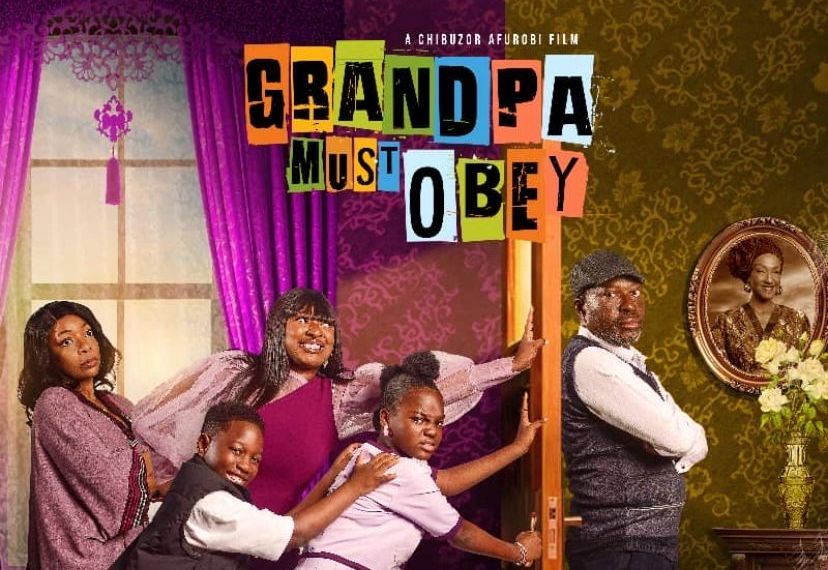In a music industry that’s constantly evolving, honest reflections from successful artists often provide valuable insight into the human side of fame and artistry. Nigerian Afrobeat sensation Made Kuti, grandson of the renowned Fela Anikulapo-Kuti, has recently opened up about his musical journey, his approach to marriage, and the lessons he’s picked up along the way.
Made Kuti’s name carries significant weight in Afrobeat circles, not just because of his family’s legendary status, but also due to his personal musical growth and innovative contributions. Despite growing up surrounded by music icons, Made says his path has been marked by both triumphs and regrets, especially when it comes to mastering his craft.
Learning Music the Hard Way: Made Kuti’s Reflections on Growth
In a recent discussion with Saturday Punch, Made Kuti gave a candid account of his early music education. Although it might be easy to assume that growing up in the Shrine—Fela’s famed Lagos nightclub—would guarantee expertise, Made admits that his journey was not without stumbles. “I wish I had practised more when I was younger. I regret jumping from instrument to instrument, instead of learning them one after the other,” he confessed.
For many aspiring Nigerian musicians, his experience is a familiar one. It’s common for young artists to be tempted by the excitement of multiple instruments, only to later realise that true mastery often requires focused, deliberate practice. According to Lagos-based music educator Bolanle Adekunle, “Many talent-oriented students in Nigeria start out self-taught, but the discipline to focus on one instrument at a time is vital for real progress. Made’s openness about this regret is something young musicians can learn from.”
Despite these initial challenges, Made Kuti has since become adept on multiple instruments, notably the saxophone, bass, and drums—all crucial elements of classic and modern Afrobeat.
Family, Diversity, and Marriage Across Cultures
Beyond music, Made’s personal life also reflects the rich diversity of Nigeria’s social fabric. He recently addressed questions about his marriage to Inedoye Adanne Olayinka, who hails from a different Nigerian ethnic group. In a country where inter-ethnic marriages can sometimes draw family scrutiny or public commentary, Made Kuti offers a refreshing perspective.
“My family is already very mixed, and when I met my wife, it wasn’t about ethnicity; it was about values,” he explained in the same interview. “Only during the last general elections did I notice ethnic tension, but I ignored it. I’d make the same choice a hundred times over.”
Such remarks underscore a growing trend among younger Nigerians who increasingly prioritize shared beliefs and life goals over ethnic background. According to a 2022 survey conducted by NOIPolls, 47% of young urban Nigerians say they view inter-ethnic marriages as a positive way to foster unity and reduce divisions in the country. This sentiment is echoed by Dr. Ifeanyi Okoro, a sociologist in Abuja, who notes, “We’re seeing a generational shift where young couples want to form ties based on compatibility and respect, not just tradition.”
Afrobeat Legacy: Navigating Inspiration and Expectation
As the latest generation of the Kuti musical dynasty, Made faces unique pressures and opportunities. With Fela Kuti’s legacy casting a long shadow, every new project or public comment can spark debate among fans and critics both in Nigeria and across Africa. Afrobeat, which has its roots firmly planted in Nigerian soil, has experienced an international resurgence in recent years, partly driven by artists like Burna Boy, Wizkid, and, of course, the extended Kuti family.
Made’s willingness to openly discuss his journey inspires admiration, especially among Nigerians and West Africans who look up to local stars making waves on the global stage. By admitting his regrets and addressing both successes and setbacks, he provides a relatable figure for those also striving in music, arts, or other creative endeavors.
Challenges and Aspirations for The Next Generation
While the international success of Afrobeat is cause for celebration, the realities on the ground in Nigeria can be complex. Young musicians cite a lack of affordable music education, limited access to instruments, and narrow career pathways as ongoing obstacles. Government support for the arts remains inconsistent, with most rising talents depending on private mentors, social media, and community support.
To address these challenges, initiatives like the Kuti family’s New Afrika Shrine in Lagos have sought to provide not just a stage for performances but also a platform for education and cultural exchange. According to stakeholders, such spaces are vital for nurturing future talent and preserving the essence of Afrobeat while adapting to today’s realities.
Furthermore, panel discussions at recent Lagos and Accra music festivals highlighted a shared desire among West African youth for more cross-border collaborations and genre innovation. Ghanaian music critic Kwame Appiah observes, “With young artists like Made being open about their process, there’s greater opportunity for honest conversations about creativity that benefit the whole region.”
Global Reach, Local Roots: The Afrobeat Influence
As Afrobeat music continues to make waves internationally—showcased in Grammy nominations and sold-out concerts from London to New York—the significance of maintaining both Nigerian authenticity and global relevance becomes ever more important. For Made Kuti, balancing these spheres seems to come naturally; his openness about his roots and personal life demonstrates a commitment to both tradition and progress.
His story resonates not just with Nigerians but also with music lovers and cultural observers across Africa and the diaspora, illustrating the universal challenges of artistic journey, family values, and the search for meaning beyond fame.
Conclusion: Lessons, Hopes, and Open Dialogues
Made Kuti’s candid insights serve as a reminder of the real-life lessons behind the music: that growth is often messy, multicultural bonds are a strength, and that sharing one’s authentic self can foster deeper connections among fans and future generations. As Nigeria—and West Africa at large—continues to shape the global soundscape, stories like Made’s encourage reflection on what it means to honor one’s heritage while embracing new possibilities.
What do you think about Made Kuti’s journey and his approach to both music and marriage? Have similar stories inspired you or shaped your perspective on culture and creativity?
Share your thoughts in the comments, and follow us for more updates on Nigerian and West African entertainment, music, and culture!
Have a story you want to share or sell? We’d love to hear from you! Email us at story@nowahalazone.com to get your story featured or discuss story sales.
For general support or inquiries, contact us at support@nowahalazone.com.
Don’t forget to join the conversation—follow us on Facebook, X (Twitter), and Instagram for the latest in entertainment, culture, and lifestyle. We want to hear your experiences, opinions, and musical journeys too!










